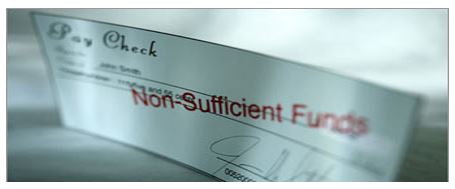
About 4 in 5 Americans live paycheck to paycheck, just one financial mishap from potential disaster. In Minnesota, that disaster can include criminal liability. When Minnesotans issue a check to a government agency, from their local county license center to the Department of Revenue, they can expect prosecution if the check bounces. And even if it was an accident, the current state of the law will presume they are guilty, potentially of a felony.
Under Minnesota Statutes Section 609.535, a person who intentionally issues a check that later bounces is guilty of a felony if the check was more than $500, a gross misdemeanor if the check was more than $250 but less than $500, and a misdemeanor if the check was $250 or less. Although the statute requires “intent,” the Legislature provided three bullet-proof methods of proving “intent.” Two of those methods ensure that people who truly did not intend to issue a check that bounced must face trial.
If a person who issues a bounced check does not pay the amount of the check within five days of the mailing of a notice, regardless of whether that person actually receives the notice, the prosecution can prove intent by showing either: (1) that the check was issued on a day when not enough money was in the bank account or (2) that the bank account did not have enough funds to cover the check when the check was presented for payment. But, of course, for the check to have bounced in the first place both of those things must be true. Thus, the prosecution has enough evidence to go to trial by virtue of the check bouncing alone. A person who accidentally issues a dishonored check has only one option: explain at trial, to a judge or jury, that it was an accident.
If you have received a notice and demand for payment or have been charged with issuing a dishonored check, contact Farrish Johnson Law Office at 507-625-2525 or via email.